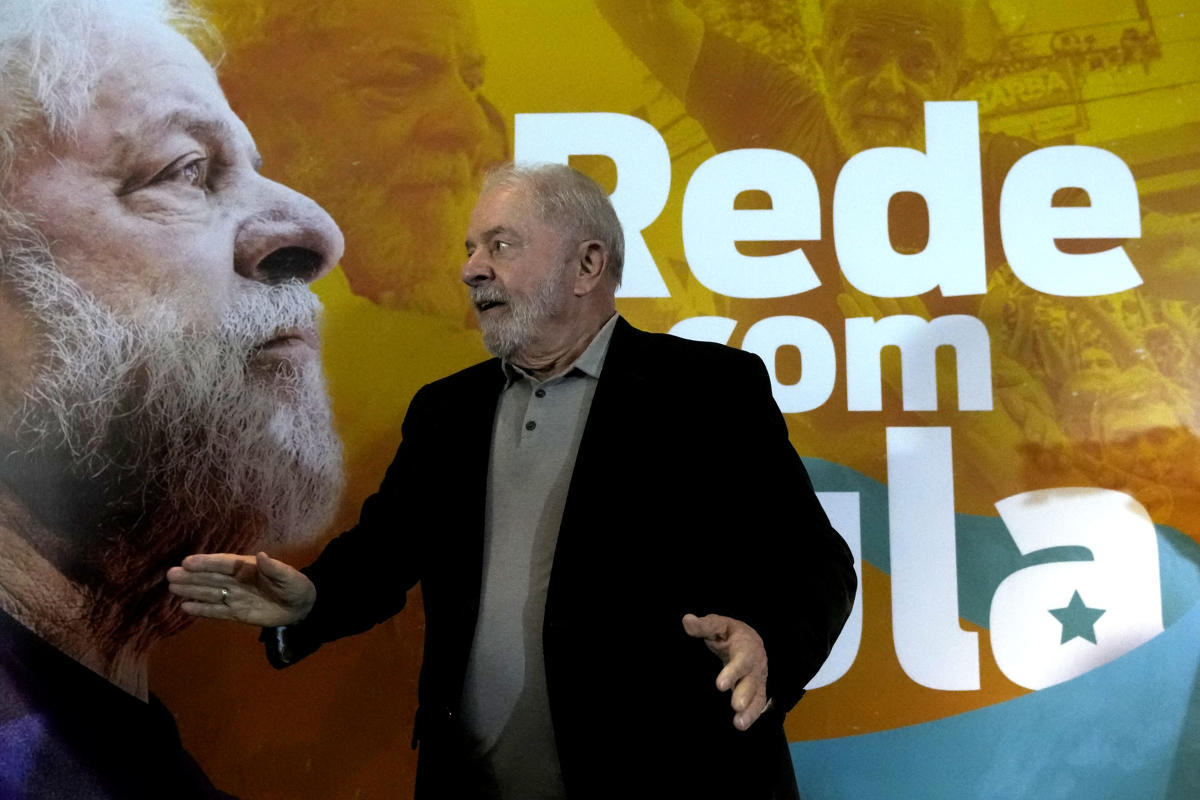
SAO PAULO (AP) — A U.N. human rights panel of experts handed a moral victory to former Brazilian President Luiz Inácio Lula da Silva on Thursday, finding he was illegally barred from running for the country’s top job in 2018 due to judicial bias.
The 15-2 decision by the Human Rights Committee comes as the 76-year-old da Silva is preparing another run for the presidency in October. He issued a statement calling the ruling “a victory for every Brazilian who believes in the rule of law and democracy.”
The leftist leader universally known as Lula had been the front-runner in the polls to return to the job he held between 2003 and 2010 when a federal judge, Sergio Moro, found him guilty of corruption and money laundering in an offshoot of a sprawling corruption probe of prominent politicians and business figures.
He was barred from running for office and was sentenced to 9 years in prison — a term later extended to 12.
But Brazil’s Supreme Court threw out the conviction last year, ruling Moro was biased against the former president — a decision largely based on messaging app conversations between Moro and prosecutors revealed by news website The Intercept Brasil.
The rights committee statement said Moro had given the media prejudicial material from wiretaps of da Silva’s phone conversations and of his initial detention for questioning.
“Although the Supreme Federal Court vacated Lula’s conviction and imprisonment in 2021, these decisions were not timely and effective enough to avoid or redress the violations,” Human Rights Committee member Arif Bulkan said in the agency’s statement.
Moro later served in the cabinet of the man who won election after da Silva was forced to drop out, Jair Bolsonaro. Moro once again denied all wrongdoing on Thursday.
He is now himself a presidential hopeful after a falling out with Bolsonaro, who is seeking reelection.
Geoffrey Robertson, one of da Silva’s attorneys, said in a statement the decision “exposes how political prejudices can affect the rights of a demonized defendant to have a fair trial.”
Since Moro was found to be biased by Brazil’s top court, all criminal cases against da Silva have been finished, his lawyers said in a press conference.
Brazil’s government now has 180 days to respond to the U.N., showing how it intends to rectify the situation.
The committee is meant to help countries uphold their commitments under an international agreement on civil and political rights, but they are not binding on governments.




